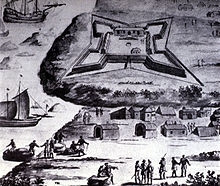BLACK SOCIAL HISTORY The German Colonial Empire was an overseas domain 1884-1914 formed as part of the German Empire. Short-lived colonial efforts byindividual German states had occurred in preceding centuries, but Imperial Germany's colonial efforts began in 1884. Germany's colonies were occupied by its enemies in the first weeks of World War I and the colonial empire officially ended with the effective date of the Treaty of Versailles on 10 January 1920 after its defeat in the war.
 German unification
German unification
Scramble for colonies
Many Germans in the late 19th century viewed colonial acquisitions as a true indication of having achieved nationhood. Public opinion eventually arrived at an understanding that prestigious African and Pacific colonies went hand-in-hand with dreams of a High Seas Fleet. Both aspirations would become reality, nurtured by a press replete with Kolonialfreunde [supporters of colonial acquisitions] and by a myriad of geographical associations and colonial societies. Bismarck and many deputies in the Reichstag had no interest in colonial conquests merely to acquire square miles of territory.
In essence, Bismarck's colonial motives were obscure as he had said repeatedly "... I am no man for colonies"[4] and "remained as contemptuous of all colonial dreams as ever." However, in 1884 he consented to the acquisition of colonies by the German Empire, in order to protect trade, to safeguard raw materials and export markets and to take opportunities for capital investment, among other reasons. In the very next year Bismarck shed personal involvement when "he abandoned his colonial drive as suddenly and casually as he had started it" as if he had committed an error in judgment that could confuse the substance of his more significant policies. "Indeed, in 1889, [Bismarck] tried to give German South West Africa away to the British. It was, he said, a burden and an expense, and he would like to saddle someone else with it."[8]







































































































No comments:
Post a Comment